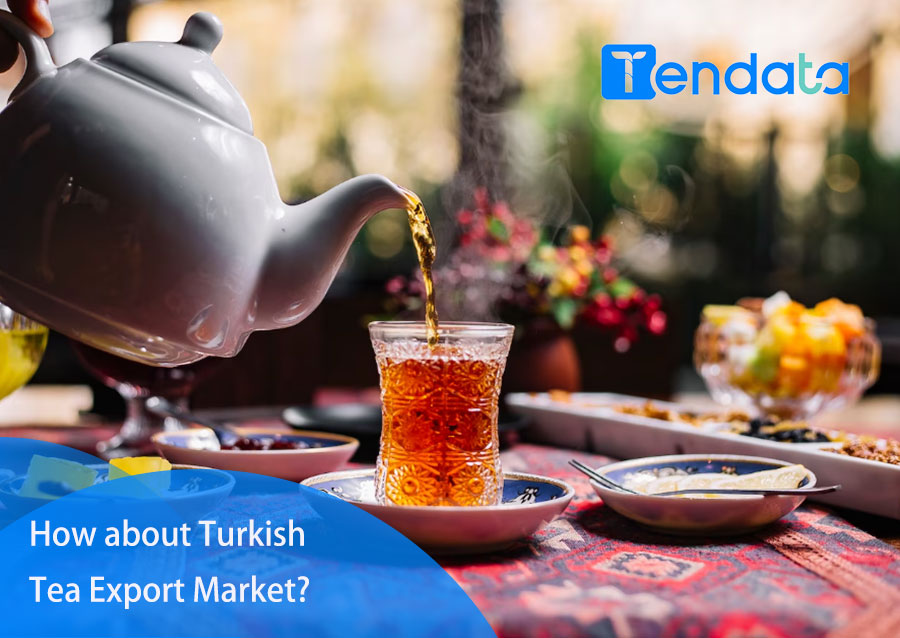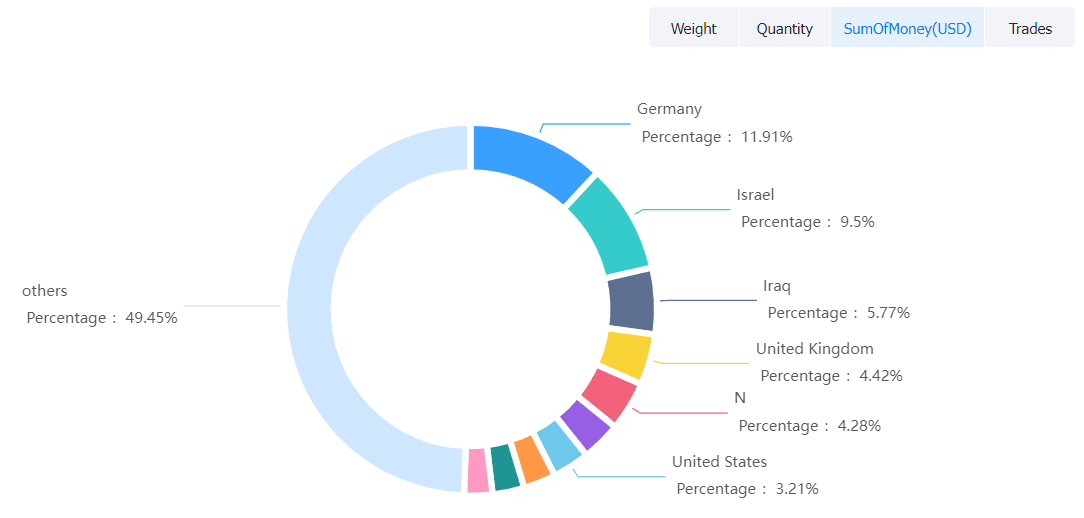 Export News
Export News
 19-01-2024
19-01-2024
Turkey, known historically as Anatolia or Asia Minor, stands as a cultural crossroads with a rich tapestry steeped in ancient civilizations. In the modern era, Turkey has become a significant player in global tea production and tea export, with an intriguing blend of cultural traditions and economic impact. This article delves into Turkey's thriving tea culture, exploring its historical roots, the uniqueness of its tea varieties, and its substantial contribution to the global tea export market.

The Turkish Love Affair with Tea: A Cultural Beverage
Tea holds a special place in the hearts and cups of both the entire Turkish population and the Turkish diaspora. Turkey boasts the highest per capita tea consumption globally, with each person consuming over 3 kilograms of tea annually. Despite being a predominantly Muslim nation, where alcohol consumption is prohibited, Turkey has established itself as a tea export powerhouse, ranking fifth among the world's major tea-exporting countries.
Tea's Social Role and Culinary Significance in Turkey: Beyond the Brew
Tea is not merely a beverage in Turkey; it's a social glue, playing a vital role in social gatherings at tea houses and gardens. Additionally, tea has found its way into Turkish herbal practices. The tea culture of Turkey extends to some countries in Northern Cyprus and the Balkan Peninsula. This section explores how tea has become intertwined with the fabric of Turkish society and its diverse applications.
Turkish Tea: A Blend of Tradition and Innovation
The Turks are avid tea drinkers, consuming an impressive 3.5 kilograms per person annually, roughly equivalent to four cups per day. The majority of Turkey's tea production, especially since the mid-20th century, is Rize tea, cultivated in the Rize province on the eastern coast of the Black Sea. The region's mild climate, high precipitation, and fertile soil create optimal conditions for tea cultivation. Throughout Turkey, one can witness people from all walks of life engaging in the timeless ritual of tea consumption.
Turkish Tea Export: Navigating Global Markets
Turkey's per capita tea consumption surpasses that of any other country globally. Men gather to discuss the day over tea, while tea houses cater to businesses and workers throughout the day. The tea plantations, primarily situated in the Rize province near the Georgian border, contribute significantly to Turkey's position as one of the world's top five tea-producing nations. Over 50% of Turkish black tea is consumed domestically, making Turkey one of the highest per capita tea-consuming nations globally, second only to the United Kingdom.
Export Dynamics and Market Destinations: Globalizing Turkish Tea
Turkey has emerged as a major player in the global tea export market, ranking among the top five tea-producing countries, accounting for 6-10% of global tea production. The article explores the factors contributing to Turkey's robust tea export industry, such as increasing global demand, reduced supply from major tea-producing nations like Sri Lanka, and the favorable economic conditions resulting from the devaluation of the Turkish lira.
The main destinations for Turkish tea exports include European Union countries, Iran, the United States, Israel, and Iraq. Notably, Belgium, Germany, France, and the Netherlands are crucial markets within the EU.
In 2023, Turkey has mainly exported tea to:
1. Germany (11.91%, $126.64 Million)
2. Israel (9.5%, $101.01 Million)
3. Iraq (5.76%, $61.29 Million)
4. United Kingdom (4.42%, $47 Million)
5. Iran (3.44%, $36.6 Million)
6. United States (3.21%, $34.17 Million)

Conclusion: Turkey's Tea Legacy and Global Impact
Turkey's unique position as both a top consumer and tea exporter showcases the intertwining of tradition and modernity. The article illuminates how tea, deeply rooted in Turkish history, has become a symbol of cultural identity, a social catalyst, and a significant player in global trade. As Turkey continues to navigate the dynamic landscape of the tea market, its centuries-old tea traditions stand resilient, leaving an indelible mark on both local and international tea cultures.
In the new era of international trade, if you don't engage in proactive marketing, the customers will belong to others!
Tendata platform stands apart from the passive waiting-for-customers approach of traditional B2B platforms. Built on big data, Tendata actively conducts in-depth analysis of customer backgrounds, precisely pinpointing buyers with transaction records, thus significantly filtering and targeting major clients. (>>>Click to Inquire about Tendata Products)
With Tendata iTrader, boasting customs data from over 80 countries, internet data from 141 countries, commercial data from 198 countries, and a database of 130 million purchasers, processing a daily roll of 10 billion records, you can swiftly and intelligently sift out 120 million executives and decision-makers, complete with contact information such as email, phone, and social media. Additionally, it synchronously displays company directories, product images, and websites, while offering 17 types of visual reports, aiding foreign trade enterprises in precisely positioning and analyzing markets, helping you swiftly locate the precise buyers and suppliers you need. Visit the Tendata official website for more information.

Category
Leave Message for Demo Request or Questions


 T-info
T-info T-discovery
T-discovery

 My
Tendata
My
Tendata Market Analysis
Market Analysis Customer
Development
Customer
Development Competitor
Monitoring
Competitor
Monitoring Customer Relationship
Customer Relationship





































































































































